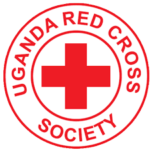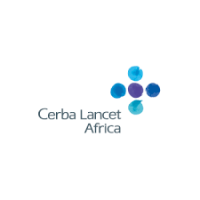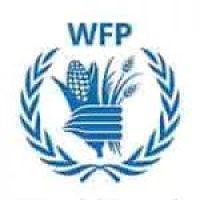The Manager, Epidemic & Pandemic preparedness and response will be responsible to prevent, detect, respond and recover from epidemics/pandemics if they occur. The Manager will ensure that communities are at the center of epidemic and pandemic preparedness and play a significant role using the all-hazard, whole-of-society approach while complementing the Government health emergencies preparedness strategies and initiatives aimed at meeting obligations under Global Health Security Agenda (GHSA) and the International Health Regulation (IHR).
Key Result Areas
Strategic planning and Management
With Assistance from the Director Health and Social Services lead the establish of the project team and as a Manager, provide the necessary guidance and support to team members; Ensuring compliance to URCS, donor and Government of Uganda policies, procedures and guidelines
Lead in the design and roll out of surveillance guidelines, protocols, surveys and monitoring surveillance systems for detection, verification and local response to public health incidents across branches ensuring efficient data collection, correlation, analysis, interpretation, timely reporting and dissemination of information/alerts to all stakeholders;
Lead the development of all Epidemic and Pandemic program/ project budgets;
Work with branches and volunteers to institute mechanism for disease outbreak surveillance guided by accurate data collection in collaboration with the districts, civil society, the media and health facilities;
Supervise and facilitate/co-facilitate the realization of risk mapping trainings at community levels for the subsequent development of risk management plans;
Coordinate the establishment of: functional health emergency response teams in branches; early warning systems for epidemic and pandemic; early detection and response to potential health risks including Zoonotic diseases;
Develop appropriate contingency plans for building the capacity of communities to conduct surveillance, alert and respond to health emergencies in accordance with URCS response protocols
Coordination, advocacy and representation
Organizing and participating in coordination meetings with relevant stakeholder, nationally and locally
Coordinating and participating in advocacy events at national and local level in close collaboration with local partners
URCS representation where required.
Advocate for URCS’ Epidemic and Pandemic Projects with donors and humanitarian stakeholders, in cluster meetings, workshops, conferences and in other relevant fora.
Participate in relevant meetings with Red Cross Movement partners, Governments, donors, NGOs and UN Agencies co-financing and implementing initiatives for disaster risk management
Performance Management and Program Quality.
Support project officers to ensure smooth implementation of Epidemic and Pandemic project activities within schedule and budgets, including keeping track of appointments, work plans, and tasks that need to be accomplished, keeping Epidemic and Pandemic projects details into perspective and being ready to get down to a microscopic level if needed, checking final output of the project against expected results for differences in requirements or any other inconsistencies as well as follow up on implementation of all planned actions in target districts as well as those implemented at National levels.
Develop and coordinate relationships that will identify opportunities to improve communication efforts and emergency response actions outside the National Society and vulnerable communities.
Conducting capacity development and offering support to project staff, volunteers and community first responders in all relevant themes of the Epidemic and Pandemic projects;
Organizing and facilitating workshops to ensure that lessons learnt and good practices from Epidemic and Pandemic projects in the region are compiled and utilized to improve future planning, programming and implementation.
Keeping project management team and stakeholders informed about the progress at every project milestone
Exploring alternative solutions to problems and looking for ways to prevent them in future
Support branches and Project Officers to develop, maintain and improve work coordination with local key stakeholder partners (District Authorities, community, NGO, international humanitarian agencies), to ensure successful implementation of the project activities
Develop progress reports periodically to line manager, in order to ensure the provision of accurate and updated information
Resource Mobilization and partnerships
Actively support the directorate initiatives of resource mobilization through proposals development and any other form and drive programs development for Epidemic and Pandemic projects in existing and new contexts in line with the URCS Strategy;
Develop fundable project proposals for operational growth of the URCS Epidemic and Pandemic programs/projects portfolio
People management.
Support the Director in operationalizing the Epidemic and Pandemic Unit of the National Society
Establishes priorities and sets management performance goals for staff.
Recommends and coordinates training programs for the project staff.
Actively engages in management performance duties and ensures the provision of management, guidance, development, training, constructive feedback, performance evaluation and appraisal, and provision of administrative support and other management functions to staff in the areas of his/her responsibility.
Ensures good order and discipline of staff under his/her overall supervision
Develops initiatives to promote the welfare and well-being of the Directorate staff
Volunteer Management
Identify exemplary performance and recommend such to Management through the Volunteer Management Officer for reward.
Set the number of days’/hours volunteers are supposed to volunteer per week /month.
Support OD in volunteer selection, recruitment, engagement, motivation and retention.
Set the project time frame and at what stage volunteers will be needed.
Support program requests to Director Health & Social Services for extension of volunteer’s engagement in case there are still pending works after the end line of the project.
Support volunteers to work in a safe, healthy and conducive environment.
Support the development of volunteer’s trainings/capacity building agenda
Organize quarterly project volunteer team building sessions.
Support Branches to conduct individual volunteer performance assessment
Set up a selection criterion for the volunteers
Budgetary controls and Asset Management
Prepare, manage and monitor all Epidemic and Pandemic Project budgets by developing monthly budget monitoring framework, including monthly Budget Variance Analysis (BVA) as well as following up to ensure that required service outputs are delivered within approved budget allocations and provide value for money
Ensure Safe custody of and efficient use of the National Society’s resources & assets assigned to project staff
Performance Monitoring, Evaluation & Reporting (PMER):
Securing efficient monitoring of quality implementation, including timely preparation and submission of project reports as well as making sure, that the allocated budget is used according to the agreements with donor and partners
Ensuring an efficient, timely and well executed response to any kind of disasters within the target area
Integration of Prevention of Sexual Exploitation and Abuse Policy:
Ensure all the staff you supervise and representatives understand and comply with all aspects of Prevention of Sexual Exploitation and Abuse Policy.
Create an organizational culture and fostering a working environment which is free from and prevents sexual exploitation and abuse and supports the implementation of this Policy.
Apply and maintain mechanisms and managerial systems to support the implementation of this Policy including effective supervision, awareness raising, prevention, reporting, and responding.
Role model the standards of conduct and behavior required by this Policy and by making every reasonable effort to create and maintain an environment that assists in preventing SEA.
Take immediate and appropriate action of reporting upon receipt of any report or complaint about SEA allegations, concerns or suspicions or retaliation related to SEA, as stated in the present policy under.
Integrate the issue of prevention of sexual exploitation and abuse systematically into information campaigns, training and meetings with affected people with particular attention given to vulnerable groups.
Report SEA incidents as per reporting mechanisms established in 8.4 of the PSEA Policy
Promote engagement with local groups such as gender groups, women’s associations and those representing marginalized people such as disabled peoples’ organizations, with aim of awareness raising on zero tolerance for SEA and, where appropriate, working jointly to set gender-sensitive community-based complaint mechanisms that put the rights, capacities and needs of survivors at the center.
Any other duties
Carries out any other lawful assignment allocated by the immediate Supervisor: The jobholder is cooperative and readily responds to any ad hoc tasks assigned to him.
QUALIFICATIONS/REQUIREMENTS
Minimum qualifications, working experience and competencies:
Education Qualifications
Minimum of Bachelor’s Degree in Human Medicine and Surgery or Veterinary Medicine/Science or related field from an approved, recognized and reputable university
Possession of a Master’s Degree in Public Health, Community Health, International Health, Epidemiology, Health Information Management or Public Management of Communicable Diseases or related field from an approved, recognized and reputable university is an added advantage;
Trainings in; Project planning and management, Integrated Disease Surveillance and Response, Monitoring and evaluation
Experience
Minimum of Five (5) years’ professional experience in implementing & Managing Public Health Program or Integrated Disease Surveillance and Response (IDSR); three (3) of the years with supervisory responsibilities in the mentioned fields.
Robust experience in Strategy Development, Proposal Development, Budget Development, Program Implementation, Monitoring and Evaluation.
Experience with large institutional donors and funding bodies at international or national humanitarian agency level is an added advantage
Core Competencies
Negotiation and conflict management
Innovation and creatively
Stakeholder management
Commitment to continuous learning
Communication
Technology awareness
Policy research and development
Change capability and adaptability
Manage resources
Empowering and building trust.
Essential Knowledge and Skills
Sound knowledge and skills in database management and statistical analysis, monitoring and evaluation or public health information management.
Demonstrated knowledge, competency and professional skills on the public health aspects of infectious disease control, epidemic and pandemic preparedness and response with particular attention to application of an all-hazard approach in the context of the International Health Regulations (IHR), Global Health Security Agenda (GHSA) and the use of event based and indicator based surveillance.
Knowledge of districts health infrastructure and systems
High levels of integrity
Analytical Skills
Data analysis and reporting skills
Public speaking and presentation
Budgeting and budgetary control
Networking, alliance building and stakeholder management.
Negotiation skills.
Project Planning and Management
Team building and management.









